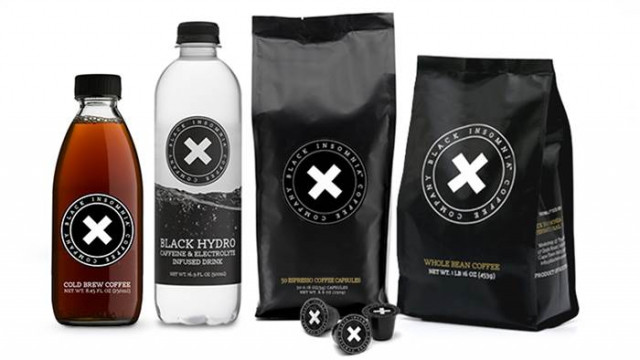‘World’s strongest’ coffee makers boast ‘dangerously high’ caffeine levels
Caffeine Informer lists Black Insomnia as one of the "Most Dangerous Caffeinated Products"

PHOTO: BLACK INSOMNIA COFFEE
With 17524 mg of Caffeine per kg Black Insomnia coffee is 27 per cent stronger then Wodfee who has 13809 mg per kg and 33 per cent stronger than DeathWish Coffee who has only 13179 mg of Caffeine per kg.
According to Black Insomnia founder Sean Kristafor: "If you want to stand out, you need to be the 'est' -- the biggest, smartest, strongest, or cheapest."
"So when we wanted to compete in coffee, as a caffeine product, we had to be the strongest, but obviously, we don't exceed the world guidelines.” He added.
Coffee or tea: What's your go-to beverage?
After founding the company, Kristafor, a coffee enthusiast, first sold locally to cafes in Cape Town, South Africa. Now the the company says it sells five to six tons of coffee every month with customers in more than 22 countries.
The coffee has a sweet nutty taste and its strength lies in the robusta beans and the way they are roasted. Black Insomnia is more than two times as strong as Starbucks' dark roast. Although Kristafor said this level is inside the limits for a shot, one cup (12 oz.) could total 702 mg of caffeine which is more than the 400 mg of caffeine for daily consumption advised by the FDA and the International Food Information Council.
The South African newcomer boasts it has achieved “dangerously high levels of caffeine” by harvesting only Robusta beans, rather than the tamer Arabica variety.
Jack Daniel's is now producing coffee
According to Mary Sweeney, who researches the effects of caffeine at Johns Hopkins School of Medicine, this means: "For the same amount of coffee, you will get double the amount of caffeine,"
"This makes it easier to consume more caffeine than you intend to and effects can range from mild to severe, for example, jitteriness, nervousness, restlessness and trouble sleeping. The most serious effect would be cardiac arrhythmia (irregular heartbeat)."
Consumer information site Caffeine Informer lists Black Insomnia as one of the "Most Dangerous Caffeinated Products."
"While the amounts are still much higher than what we experts recommend as a safe daily amount (400 mg), this group of people has, over time, built up their caffeine tolerance, and/or their livers process caffeine really well so it doesn't affect them adversely," said Ted Kallmyer, editor of Caffeine Informer. "However, the problem with these products is that they can inadvertently be consumed by people who are not in the targeted category."
However Kristofar said: "We are very aware of the limits and there are clear warnings on the labels.”
This article originally appeared on CNN



















COMMENTS
Comments are moderated and generally will be posted if they are on-topic and not abusive.
For more information, please see our Comments FAQ